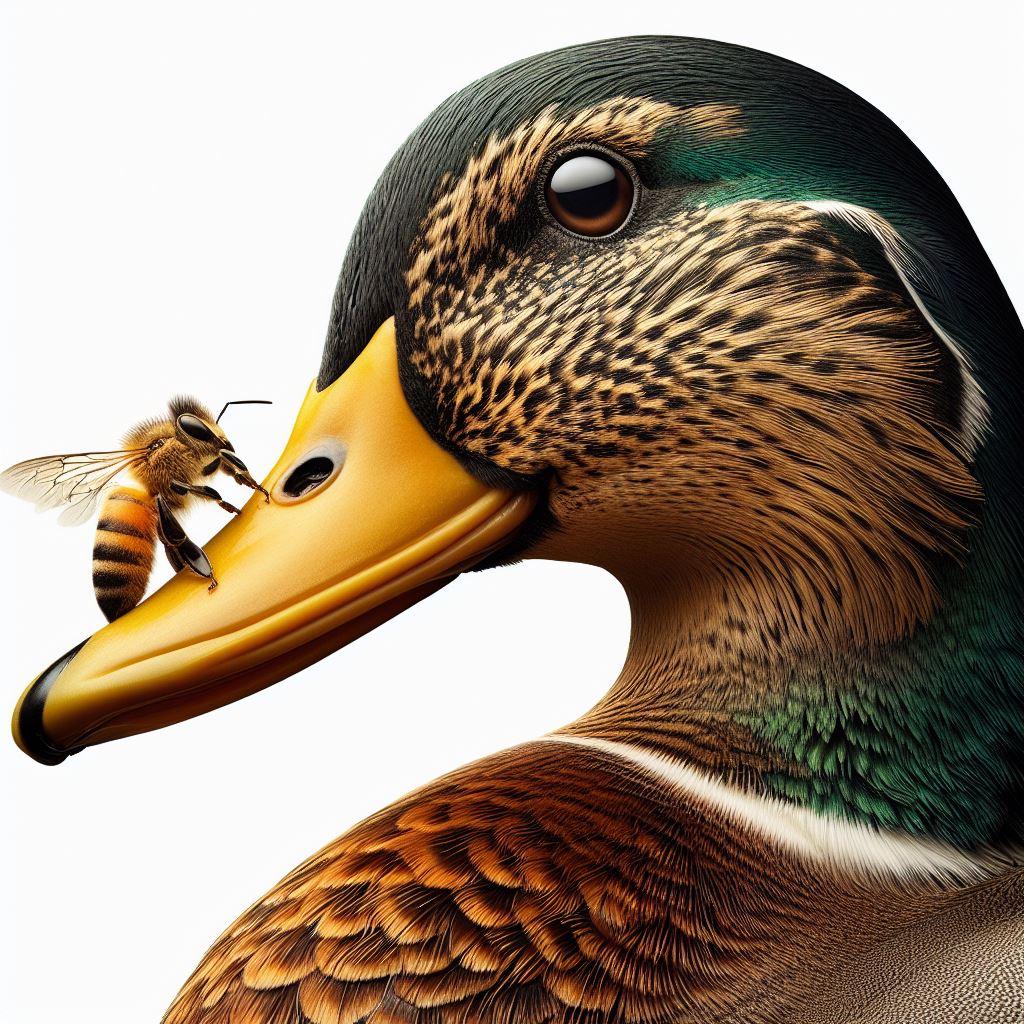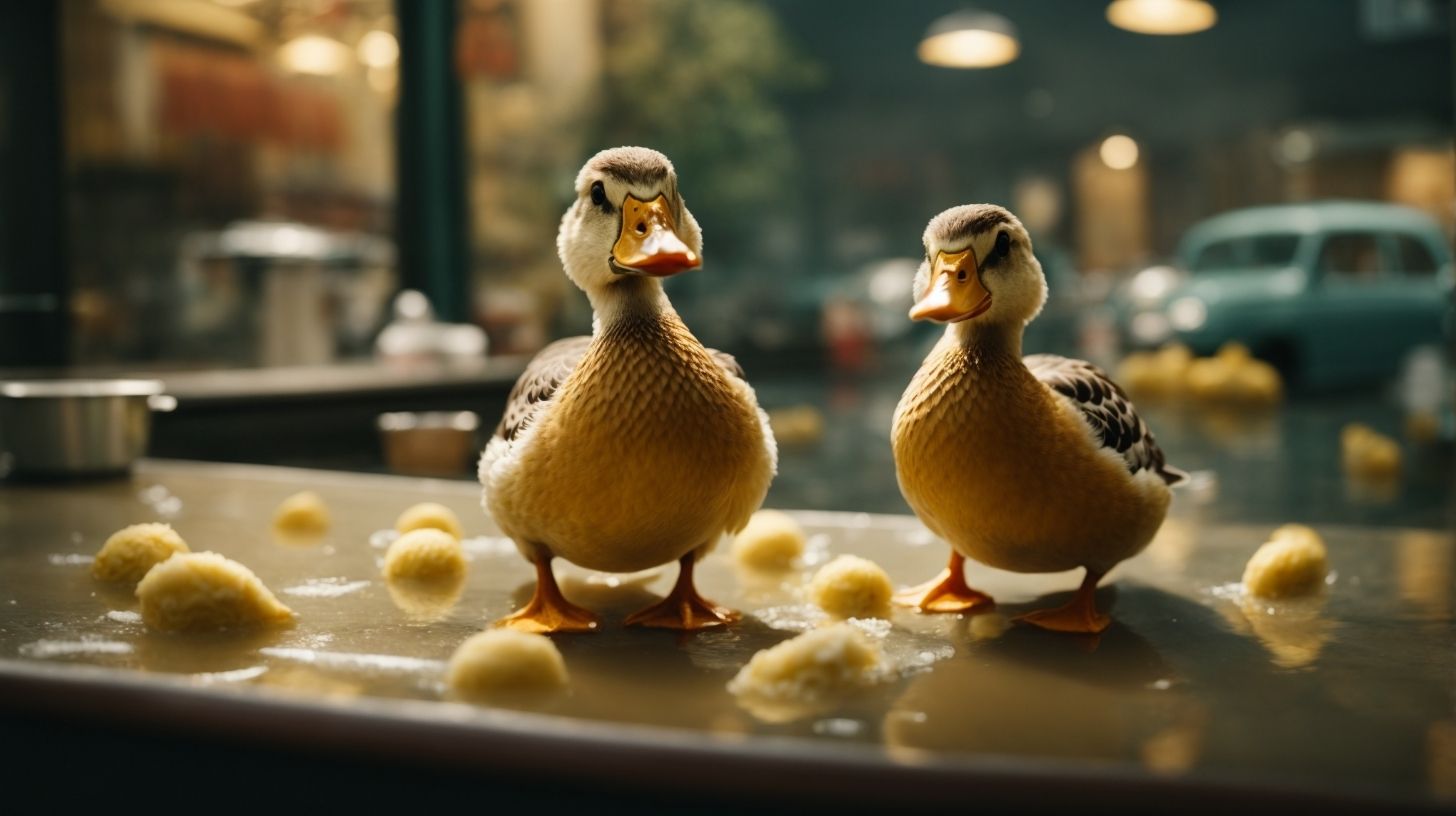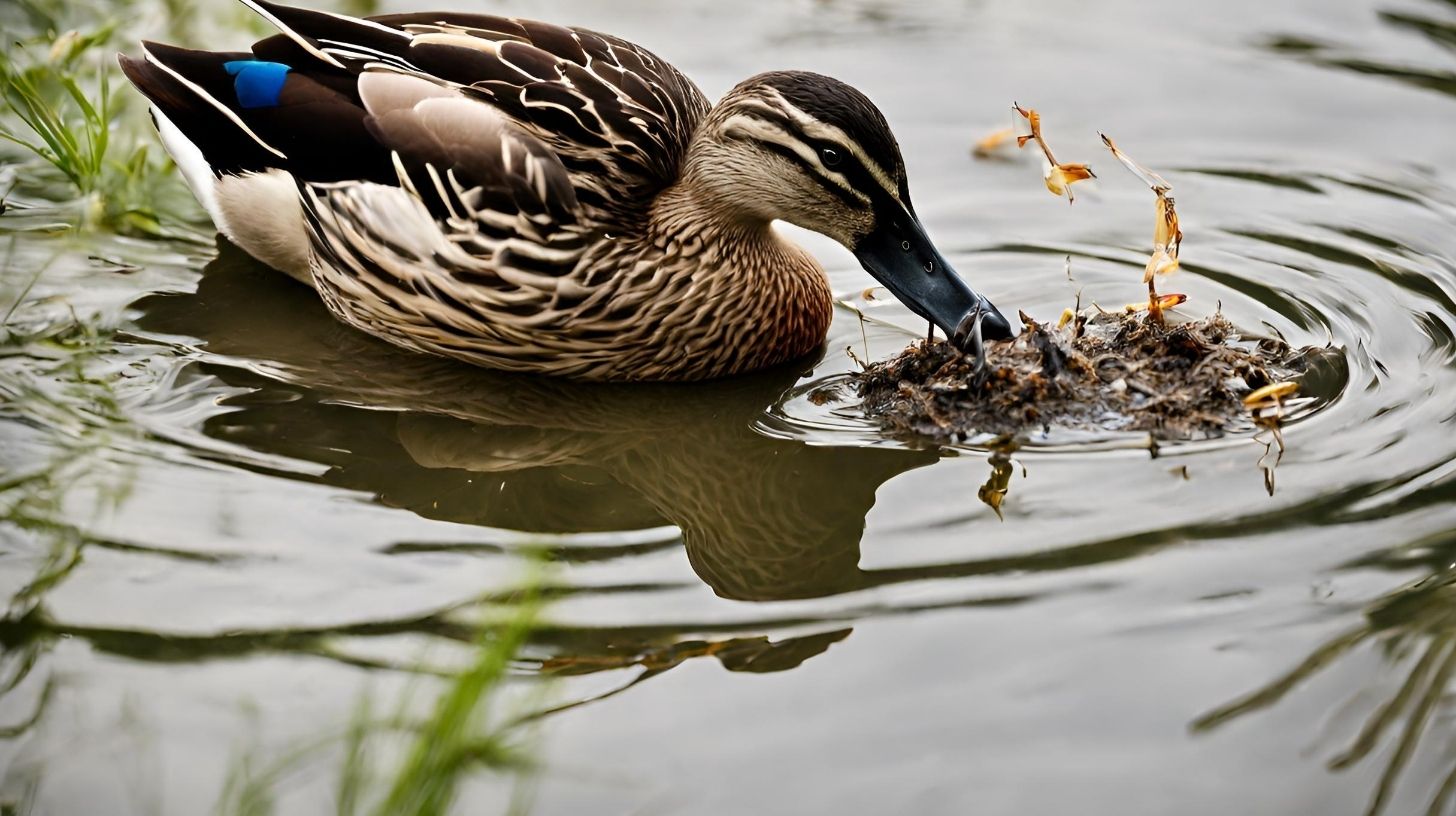Can Ducks Eat Pomegranate? What Owners Need to Know

Table of content:
- Is Pomegranate Good or Bad For Ducks?
- Can Baby Ducks Eat Pomegranate?
- What Parts Of Pomegranate Can Ducks Eat?
- Can Ducks Eat Pomegranate Seeds?
- Do Wild Ducks Eat Pomegranate?
- How Much Pomegranate Can I Feed Ducks?
- Healthy Ways to Feed Ducks Pomegranate
- Are There Any Risks With Feeding Ducks Pomegranate?
- Signs of Pomegranate Allergy in Ducks
- What Other Fruits Can Ducks Eat?
- Can Ducks Eat Pomegranate With Other Ducks?
- What Foods Are Toxic For Ducks?
- Frequently Asked Questions
- Conclusion
Pomegranate is a nutritious fruit enjoyed by humans for its sweet taste, vibrant color, and antioxidant benefits. But can ducks eat pomegranate as well? The short answer is yes, ducks can eat certain parts of a pomegranate in moderation.
Key Takeaways:
- Ducks can eat pomegranate seeds and flesh in moderation as part of a balanced diet. The seeds provide vitamins, minerals, and antioxidants.
- Avoid feeding too much pomegranate as it contains natural sugars. Overfeeding can cause digestive issues and obesity.
- Young ducklings should not eat pomegranate at all due to choking hazards from the seeds. Wait until ducks are fully grown.
- Remove pomegranate peels and membranes as they contain tannins that can be toxic to ducks in large quantities. Only feed ducks the arils.
- Introduce pomegranate gradually mixed with their regular food. Monitor for any signs of allergic reaction or intolerance.
Pomegranates contain a fleshy interior made up of many seed pods called arils that are safe for ducks to consume. The arils provide beneficial nutrients like vitamin K, folate, potassium, and polyphenol antioxidants.
However, duck owners need to be aware of some important precautions when feeding pomegranate:
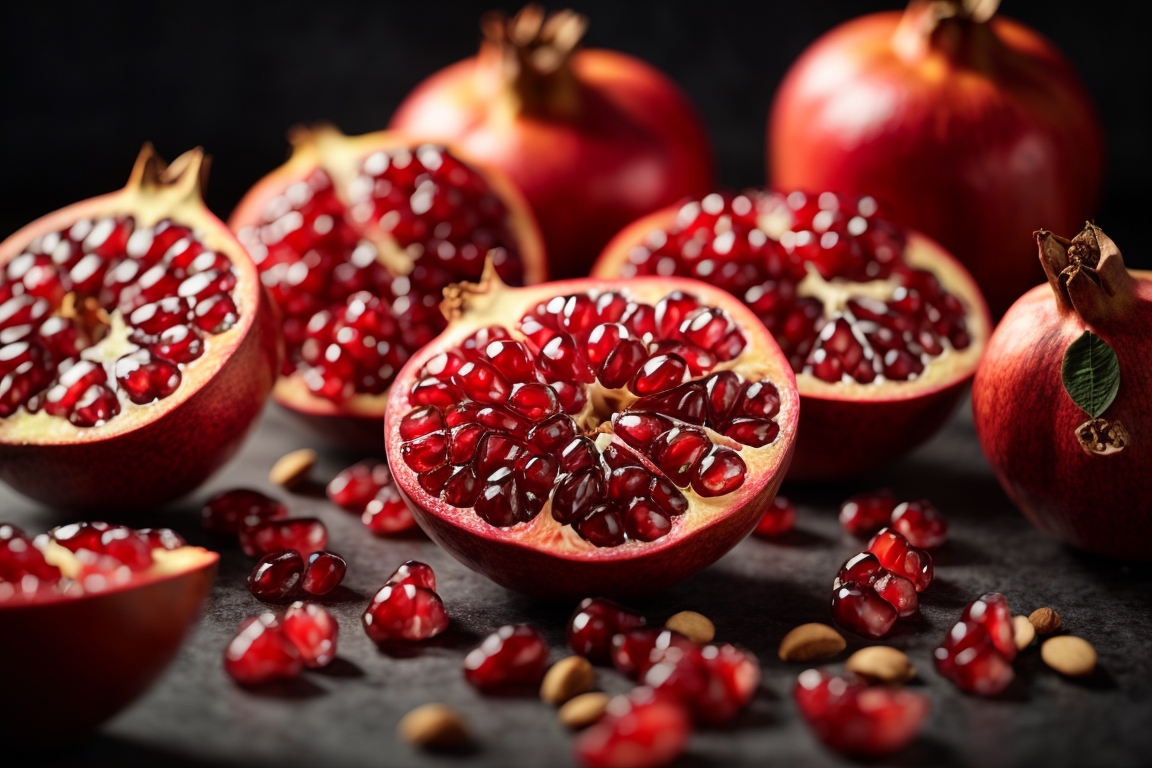 Is Pomegranate Good or Bad For Ducks?
Is Pomegranate Good or Bad For Ducks?
Pomegranate seeds and arils can be a nutritious treat for ducks. But too much pomegranate can cause problems. Here are the pros and cons:
Benefits of Pomegranate for Ducks
- Excellent source of vitamin K, folate, potassium, polyphenol antioxidants
- Arils provide hydration from high water content
- Fiber from seeds promotes healthy duck digestion
- Anti-inflammatory effects can boost immunity
- Antioxidants help fight disease and inflammation
Risks of Pomegranate for Ducks
- High natural sugar content can cause obesity if overfed
- Seeds pose choking hazard for young ducklings
- Pomegranate membranes and peels contain tannins toxic to ducks
- Allergies or intolerance are possible in some individual ducks
So in moderation, pomegranate arils can provide great nutrition. But duck owners need to be careful not to overdo it with this fruit.
Can Baby Ducks Eat Pomegranate?
Pomegranate and other fruits should be avoided for baby ducks and ducklings under 16 weeks old.
The small, hard seeds pose a major choking risk for young ducks. Ducks at this age have narrow throats and are unable to swallow larger solid pieces of food easily.
Wait until ducks are fully grown adults before offering pomegranate for the first time. Adult ducks have fewer issues swallowing the seeds whole.
For young ducklings, it’s safest to feed a proper starter feed made specifically for baby waterfowl. This will provide balanced nutrition suitable for their growth stage.
What Parts Of Pomegranate Can Ducks Eat?
Ducks can eat the juicy seed arils of a pomegranate safely. But avoid feeding ducks:
- The outer peel or rind (thick, leathery skin)
- The bitter white pith or membranes around the arils.
The peel and membranes contain high amounts of tannins. If consumed in excess, these tannins can be toxic to a duck’s digestive system.
When preparing pomegranate for ducks, be sure to remove all of the peel and pith. Break open the pomegranate and scoop out only the soft, fleshy arils.
Discard any parts of the peel or membranes clinging to the seeds. This will prevent ducks from being exposed to too many tannins.
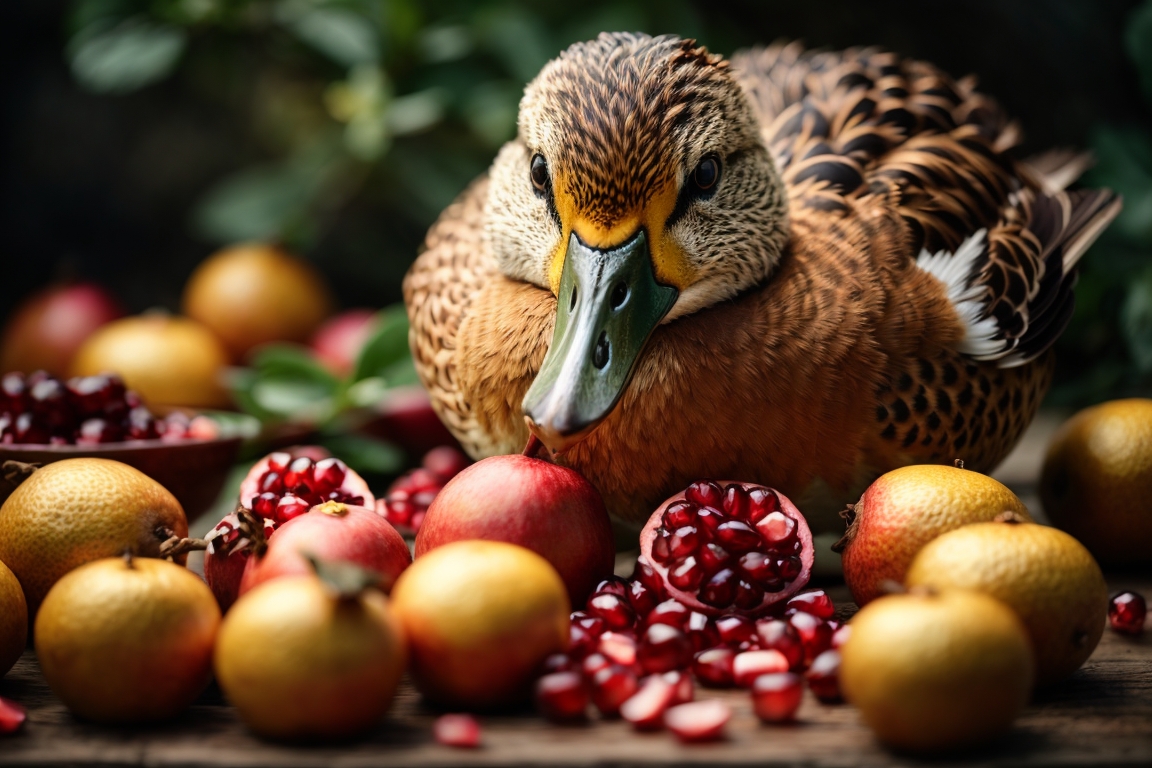 Can Ducks Eat Pomegranate Seeds?
Can Ducks Eat Pomegranate Seeds?
Yes, ducks can safely eat the individual seeds inside a pomegranate. But again, not in unlimited quantities.
The seeds provide beneficial nutrients and fiber. But they also contain sugar and acids that can cause problems if a duck eats too many.
Limit pomegranate seeds to a few tablespoons per duck just a couple times a week. Coarsely mash seeds to break them up for easier digestibility.
Always mix pomegranate seeds into your duck’s regular food. Never offer a bowl of plain seeds alone, as this allows overeating.
Do Wild Ducks Eat Pomegranate?
Wild ducks are opportunistic foragers and will sample many types of fruits found near lakes and ponds. This likely includes wild pomegranate trees at times.
Feral ducks such as mallards enjoy diverse diets and can metabolize small amounts of pomegranate flesh and seeds successfully. This is due to their active lifestyle that prevents weight gain.
However, wild ducks tend to prefer softer, easier to digest fruits like berries, melons and figs over harder-shelled options like pomegranate. They seem to intuitively limit foods heavy in tannins or acids.
So while wild ducks can and do eat some pomegranate on occasion, it makes up only a very small part of their varied diet.
How Much Pomegranate Can I Feed Ducks?
When introducing pomegranate, start with just a few seeds once or twice a week. Give 1-2 tablespoons per adult duck at first.
Gradually work up to a few times a week if your ducks seem to enjoy the taste and have no adverse reactions.
Monitor your duck’s droppings closely after feeding pomegranate. Loose stools or diarrhea can mean too much fruit sugar and acid is upsetting your duck’s digestion.
Reduce the amount or frequency if you notice any issues. Never allow ducks to overeat and gorge on pomegranate arils alone.
For variety, you can mix a small amount of pomegranate into:
- Commercial duck feed
- Cooked rice or oatmeal
- Chopped greens
- Duck pellets
This prevents overconsumption of any one food while allowing ducks to receive the benefits of pomegranate nutrition.
Healthy Ways to Feed Ducks Pomegranate
Here are some tips for safely incorporating pomegranate into your duck’s diet:
- Start with small amounts like 1-2 tbsp per duck.
- Mix pomegranate arils into other foods instead of plain.
- Remove all peel, pith, and membranes before feeding.
- Mash or chop seeds to ease digestion.
- Hydrate dry feed with juicy arils.
- Monitor droppings for any issues.
- Adjust the amount based on reactions.
- Don’t feed everyday; 2-3 times a week max.
Are There Any Risks With Feeding Ducks Pomegranate?
Pomegranate is non-toxic for ducks in small amounts. But there are some potential risks:
- Choking – Whole seeds pose a major choking hazard for young ducks and ducklings. Always supervise feeding time.
- Obesity – Too much pomegranate can lead to excess sugar and weight gain in pet ducks. Limit treats.
- Allergies – Some ducks may be intolerant or even allergic to pomegranate. Discontinue use if any signs of reaction.
- Diarrhea – Excess fruit sugar and acid can irritate the digestive tract. Stop feeding if diarrhea develops.
- Intestinal Blockage -Seeds may clump together and cause a blockage if fed dry alone without mixing into moist food. Always hydrate seeds first.
So enjoy pomegranate as an occasional treat, but don’t go overboard. Moderation and supervision are key when introducing new fruits.
Signs of Pomegranate Allergy in Ducks
Allergies to pomegranate are uncommon in ducks, but possible. Here are symptoms to watch for:
- Itching, skin redness, rashes, or feather loss
- Swelling around eyes, beak, head
- Excessive sneezing or wheezing
- Vomiting
- Diarrhea, especially with blood
- Loss of appetite
- Lethargy
Stop feeding pomegranate immediately if any of these reactions develop. Seek veterinary help if severe or persistent.
Fortunately, true allergies are rare. However, some individual ducks may be sensitive and prone to irritation when eating pomegranate.
What Other Fruits Can Ducks Eat?
For variety, ducks enjoy sampling many different fruits in moderation. Some other good options are:
- Grapes – Halved to prevent choking
- Melons – High moisture content
- Berries – Such as chopped strawberries, blueberries, blackberries
- Banana – Rich in potassium
- Apple – High fiber content
- Kiwi – Loaded with vitamin C
- Papaya – Contains digestive enzymes
Rotate different fruits to add diversity. Always introduce new foods slowly and watch for any signs of individual intolerance.
Can Ducks Eat Pomegranate With Other Ducks?
Yes, you can offer pomegranate arils to a whole flock of ducks together. But take precautions:
- Closely supervise feeding time.
- Don’t leave plain seeds accessible as ducks may overeat.
- Ensure adequate space for all ducks to eat comfortably. Crowding increases choking risk.
- Check each duck’s droppings for signs of digestive upset.
- Adjust or stop feeding if any duck reacts poorly.
With proper introduction and monitoring, most ducks can enjoy pomegranate as part of a mixed flock or individually. But be conservative at first with amounts.
What Foods Are Toxic For Ducks?
Some common human foods are toxic for duck health. Avoid:
- Chocolate – Contains theobromine, toxic to birds
- Caffeine – Can be fatal even in small doses
- Alcohol – Can cause liver damage and toxicity
- Raw Beans – Contain lectin phytohemagglutinin
- Avocado – Persin toxin causes cardiac damage
- Onions – Contains sulfur compounds that destroy red blood cells
- Dried Beans or Peas – Can cause crop impactions if not soaked and cooked
Always research new foods before feeding ducks. Check toxicity lists and introduce new treats slowly while looking for any adverse reactions.
Frequently Asked Questions
Can ducks eat pomegranate seeds whole?
Adult ducks can swallow small whole pomegranate seeds. But it’s safer to coarsely crush seeds to aid digestion. Never feed plain dry seeds without mixing into moist food first.
Do ducks like the taste of pomegranate?
Most ducks seem to enjoy the sweet-tart flavor of pomegranate arils. However, taste preferences can vary by individual. Introduce slowly to gauge your duck’s interest.
Why can’t baby ducks eat whole pomegranate?
The hard seeds present a choking hazard for young ducklings. Their small throats cannot swallow larger pieces of food easily yet.
Is it okay to feed ducks dried pomegranate arils?
No, dried arils are too hard and pose a greater choking risk. Always rehydrate dried pomegranate in water before feeding to ducks.
Can wild ducks get sick from eating too much pomegranate?
Wild ducks likely don’t overconsume any one food item. Their varied foraging helps them maintain balanced nutrition. Obesity and overfeeding risks mainly apply to domestic pet ducks.
Conclusion
In moderation, pomegranate can be a healthy, nutritious treat for ducks. Focus on feeding only the soft arils and be conservative with portion sizes.
Avoid overfeeding fruits high in natural sugar as it can lead to weight gain and other issues. Always introduce new foods gradually while monitoring for any individual duck’s allergic reactions or intolerances.
Use pomegranate as one part of a diverse diet to provide ducks with a variety of different nutrients from multiple food sources. This will keep ducks happy and healthy while letting them enjoy the unique flavor and nutrition pomegranate can offer.
Welcome. I’m Adreena Shanum, the proud owner of this website, and I am incredibly passionate about animals, especially poultry. I founded adreenapets.com as a labor of love, stemming from my desire to share my knowledge and experiences with poultry enthusiasts worldwide.


